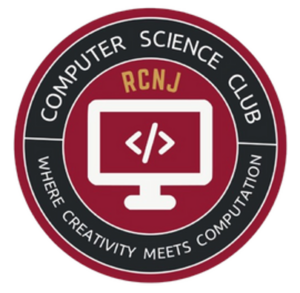- About Ramapo
- Academics
- Admissions & Aid
- Student Life
- Athletics
- Alumni
- Arts & Community
- Quick Links
- Apply
- Visit
- Give
Center for Data, Mathematical and Computational Sciences
January 23, 2026Hack Ramapo 2026: AI Integration Challenge

The RCNJ Computer Science Club and Sky Academy is excited to announce Hack Ramapo 2026 – an official Major League Hacking (MLH) event where innovation meets real-world impact.
Event Details
Date: Saturday, February 28, 2026
Time: 9:30 AM – 7:30 PM
Theme: AI Integration in Everyday Life
Prize Pool: $1,000
The Challenge
Build a project that uses AI to improve everyday life. More specific guidelines will be announced at kickoff—come ready to innovate!
Team Formation
Teams consist of three students. Don’t have a team yet? No problem! Register as an individual and join others to form a group during the opening session.
Open to All
Students from outside Ramapo College are welcome to participate. Spread the word to friends at other schools!
Perks
MLH will be on-site providing swag, merch, and T-shirts for participants throughout the day.
Register Now
Spots are limited—register as soon as possible to secure your place.
Register Here
Bring your ideas, skills, and team spirit to Hack Ramapo 2026!
Categories: Computer Science, Cybersecurity, Data Science, News + Updates
January 23, 2026Summer of AI 2026

Online • Asynchronous • 12 Transferable Credits
Master artificial intelligence, machine learning, and agentic systems in one intensive summer. Three 4-credit courses designed to take you from foundations to building autonomous AI agents—all online and asynchronous.
Session 1 (May 27 – June 30):
- Machine Learning
Session 2 (July 9 – August 11):
- Artificial Intelligence
- Agent Engineering
Take one, two, or all three courses!
CMPS 320: Machine Learning
Session 1 (May 27 – June 30) • 4 Credits
Build the mathematical and algorithmic foundation for modern AI. Implement regression, classification, and neural networks from scratch. Master the complete ML pipeline from data preprocessing to model evaluation and deployment.
Topics include: Linear & Logistic Regression, Decision Trees & Ensembles, Neural Networks & Backpropagation, Support Vector Machines, K-Means Clustering, Dimensionality Reduction (PCA), XGBoost & LightGBM, Deep Learning Foundations, Model Evaluation & Cross-Validation
CMPS 331: Artificial Intelligence
Session 2 (July 9 – August 11) • 4 Credits
Explore the core reasoning and representation techniques of AI. From search algorithms and game-playing to probabilistic reasoning and expert systems. Build intelligent systems that reason, plan, and make decisions under uncertainty.
Topics include: Search Algorithms (BFS, DFS, A*), Adversarial Search & Minimax, Alpha-Beta Pruning, Propositional & Predicate Logic, Bayesian Networks, Fuzzy Logic, Expert Systems, Planning & STRIPS, Knowledge Representation
CMPS 367: Agentic Software Architecture
Session 2 (July 9 – August 11) • 4 Credits
The cutting edge of AI engineering. Build autonomous AI agents that perceive, reason, and act. Master LLM integration, tool use, RAG systems, memory architectures, and multi-agent coordination. You’ll build a production-ready coding agent from scratch—then extend it with retrieval, memory, and skills systems.
Topics include: Transformer Architecture & LLMs, Agent Loop Design, Tool Use & Function Calling, Prompt Engineering & Context Engineering, Retrieval-Augmented Generation (RAG), Memory Systems (Conversation, Episodic, Semantic), Multi-Agent Patterns, Model Context Protocol (MCP), LangChain & Framework Evaluation, Guardrails & AI Safety
Prerequisites
Ramapo Students: You should have completed CMPS 231 (Data Structures) or CMPS 240 (Programming II). These courses are designed for Computer Science, Data Science, and Cybersecurity majors.
Students from Other Institutions: If you have coursework in programming (Python, Java, C++, or similar), you’re likely prepared. Earn 12 transferable credits applicable to your CS or related major. Contact us with questions about your preparation.
Technical Requirements: Basic programming proficiency is required. Familiarity with Python is helpful but not required—you’ll gain extensive Python experience throughout the sequence. All courses are fully online and asynchronous.
Questions?
Wondering if this sequence is right for you? Curious about transferring credits or your preparation level? Reach out—we’re happy to help.
Scott Frees, Ph.D.
Convenor, Computer Science & Cybersecurity
Ramapo College of New Jersey
sfrees@ramapo.edu
Categories: Computer Science, Cybersecurity, Data Science, Mathematics, News + Updates
December 1, 2025Ramapo DMC 12/1 - Updates and important events
Dear DMC Students –
As we wind down on the Fall semester, please keep the following in mind:
Spring 2026 Registration
If you have not registered for your Spring 2026 classes yet please do so immediately. The College modifies course offerings based on enrollment – over enrolled and under enrolled courses necessitate changes, and delaying your registration reduces our ability to make those adjustments for you.
If you are eligible for CMPS 366 (Organization of Programming Languages), please register for Spring 2026. There is no guarantee an alternative will be available in Fall 2026, so do not delay taking this course.
Winter 2026 Registration
Two courses being offered relevant to your majors this Winter – CMPS 130 and CMPS 147. CMPS 130 is a required course in Data Science, CMPS 147 is a required course in Computer Science and Cybersecurity. If you have questions about the Winter session, please email me.
Graduate Students – Thesis Proposal Course
If you are an MS student and plan to do your Thesis in either Summer 2026 or Fall 2026, please register for your 1-credit Thesis Proposal in Spring 2026. This is a required course that you must complete prior to your thesis semester. It is currently open for registration. Please contact me if you have any trouble signing up.
4+1 MSDS / MSCS / MSAM (Seniors)
Registration for graduate courses as an undergraduate requires an override (even if you are in the 4+1). Email me to get the override for registration!Read more
Looking for a job? ITS is looking for a programmer
Categories: Computer Science, Cybersecurity, Data Science, Mathematics, MSCS, MSDS, News + Updates
November 18, 2025DMC Partners with South Brunswick High School on AI in Computer Science Education

The DMC Center is collaborating with South Brunswick High School on a research project exploring how generative AI tools can support – rather than replace – student learning in introductory computer science courses.
As AI tools like ChatGPT become increasingly common in education, there’s an open question: how do we help students use these tools effectively without short-circuiting the learning process? This partnership between DMC Director Scott Frees and SBHS Computer Science teacher (and Ramapo adjunct Computer Science professor) Steven Schiff aims to find out.
The study involves high school students across eight sections of “Computer Science in the 21st Century,” testing three different approaches to AI access: no AI, limited AI (where students use it only for understanding), and a custom-build AI assistant – built at the Ramapo DMC Center – designed to explain concepts without writing code for students. By rotating these conditions across different programming topics, the research team hopes to understand which approaches help students learn foundational concepts most effectively.
This collaboration represents the kind of practical research needed as educators adapt to rapidly evolving technology. Rather than banning AI or giving students unlimited access, the project explores middle ground—helping students develop both programming skills and the judgment to use AI tools responsibly. The findings will provide guidance for computer science educators navigating similar questions about AI integration in their own classrooms.
Learn more about the project at codewithgrace.com.
Categories: Computer Science, Cybersecurity, Data Science
September 22, 2025DMC Student Publishes Cybersecurity Research at IEEE International Conference
Master of Science in Data Science (MSDS) student Chris Hainzl and his faculty advisor Dr. Sourav Dutta have published their research at the 12th IEEE International Conference on Cyber Security and Cloud Computing (IEEE CSCloud 2025). Their paper, titled “Dynamic Feature Clustering for Anomaly Detection in Streaming Cybersecurity Data,” addresses one of the most pressing challenges in modern cybersecurity: detecting anomalous behavior in real time from continuous data streams such as firewall logs, intrusion detection systems, and network monitors.
The research introduces Adaptive Feature Clustering for Streaming Data (AFCSD), a novel clustering approach that incrementally updates feature groupings by tracking covariance matrix drift. This dynamic method allows feature clusters to adapt as data distributions shift, enhancing both the accuracy and computational efficiency of anomaly detection in non-stationary environments.
The publication of this work at a premier IEEE conference underscores the significant contributions Ramapo students and faculty are making in advancing scalable, real-time solutions to critical cybersecurity challenges.
Congratulations to Chris and Dr. Dutta on this outstanding achievement!
Categories: Cybersecurity
September 11, 2025Save the date: Pivoting C.S. Degree into a Career into Forensics and Cyber Security

Join us for the second DMC Lecture Series of Fall 2025 – and the second by a Ramapo CS Alum!
Pivoting a C.S. Degree into a Career in Forensics and Cyber Security
November 12th, 5:30pm
ASB 524
A degree in Computer Science provides the foundation for solving real-world problems in cybersecurity and digital forensics. In this presentation, I will share how core programming and problem-solving skills translated into developing custom forensic scripts, building in-house automation tools, and streamlining complex data processes. I will also highlight how computer science fundamentals extend into my everyday work dealing with developers to senior leadership.
Craig Brady is a Senior Director of Cybersecurity with over 17 years of experience leading high-performing teams across incident response, threat intelligence, engineering, and vulnerability management. Craig specializes in building scalable security operations programs, developing insider threat frameworks, and guiding organizations through complex mergers, compliance requirements, and emerging threat landscapes. Beyond his technical expertise, Craig is recognized as a collaborative leader and mentor, focused on professional growth, team development, and fostering a culture of accountability. Outside of cybersecurity, he enjoys 3D printing, smart home projects, and traveling.
Categories: Cybersecurity, Lecture Series, MSCS, MSDS
Copyright ©2026 Ramapo College Of New Jersey | Statements And Policies | Accessibility | Contact Webmaster.
